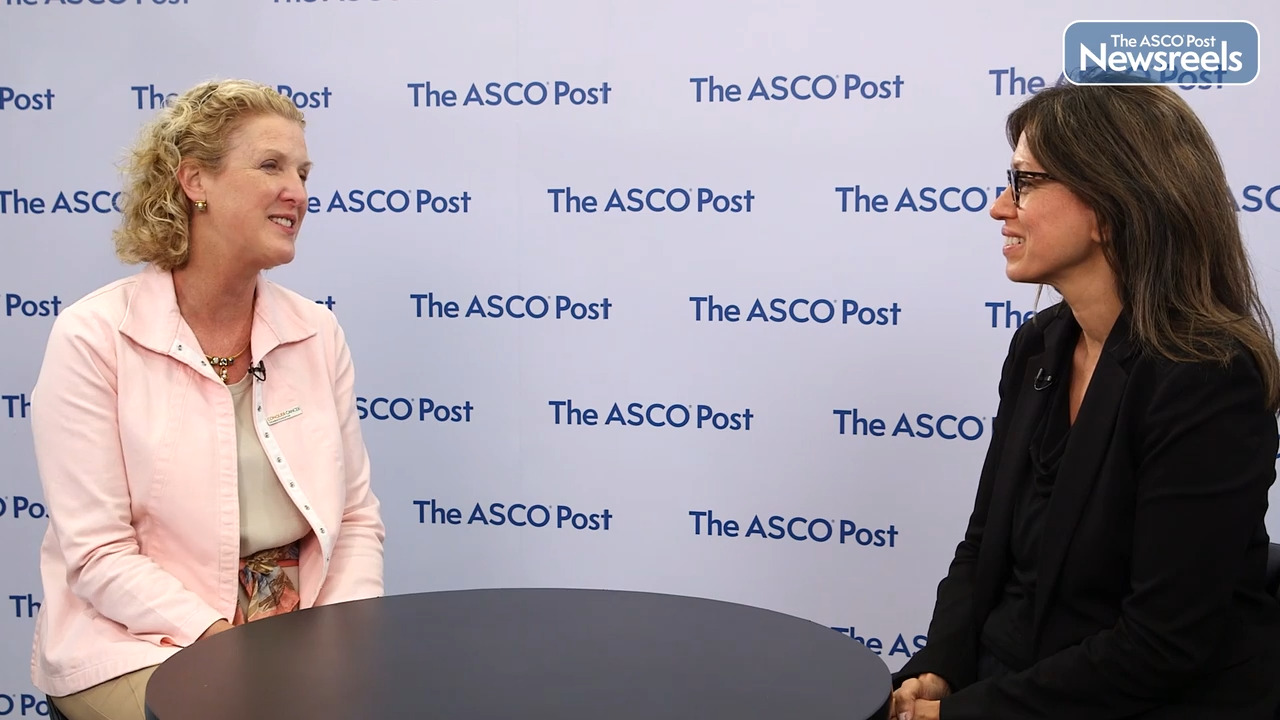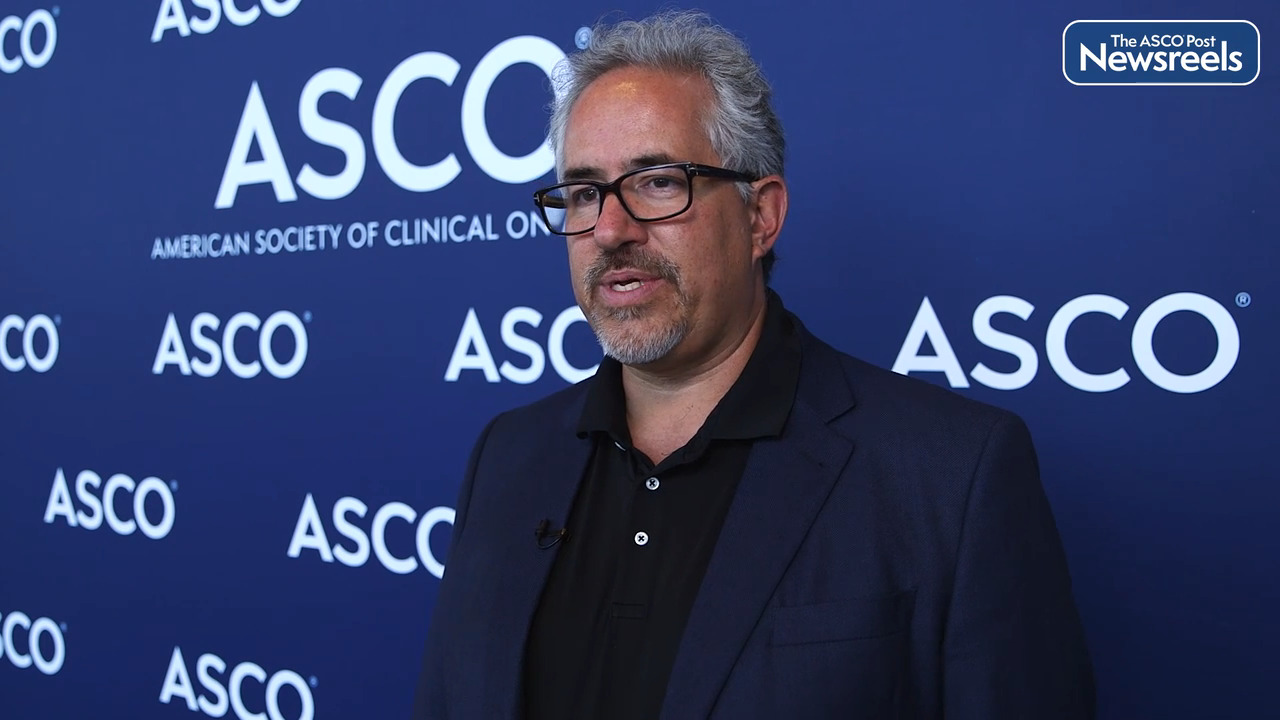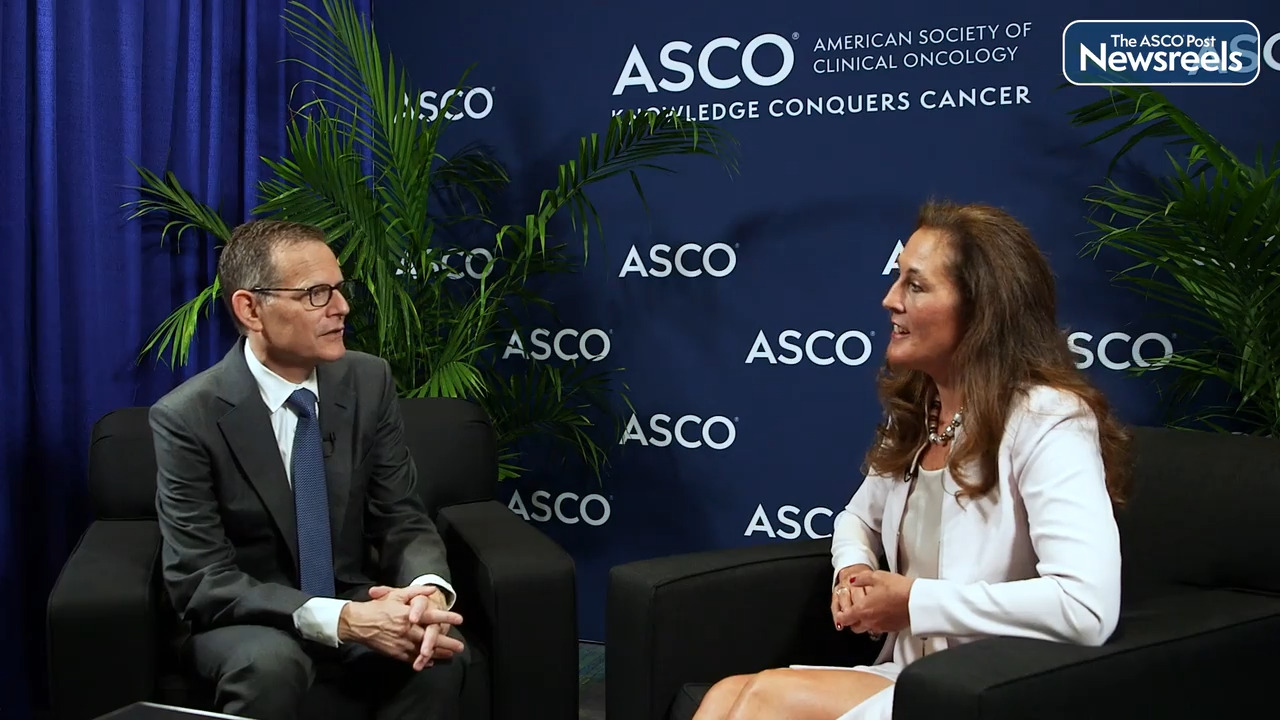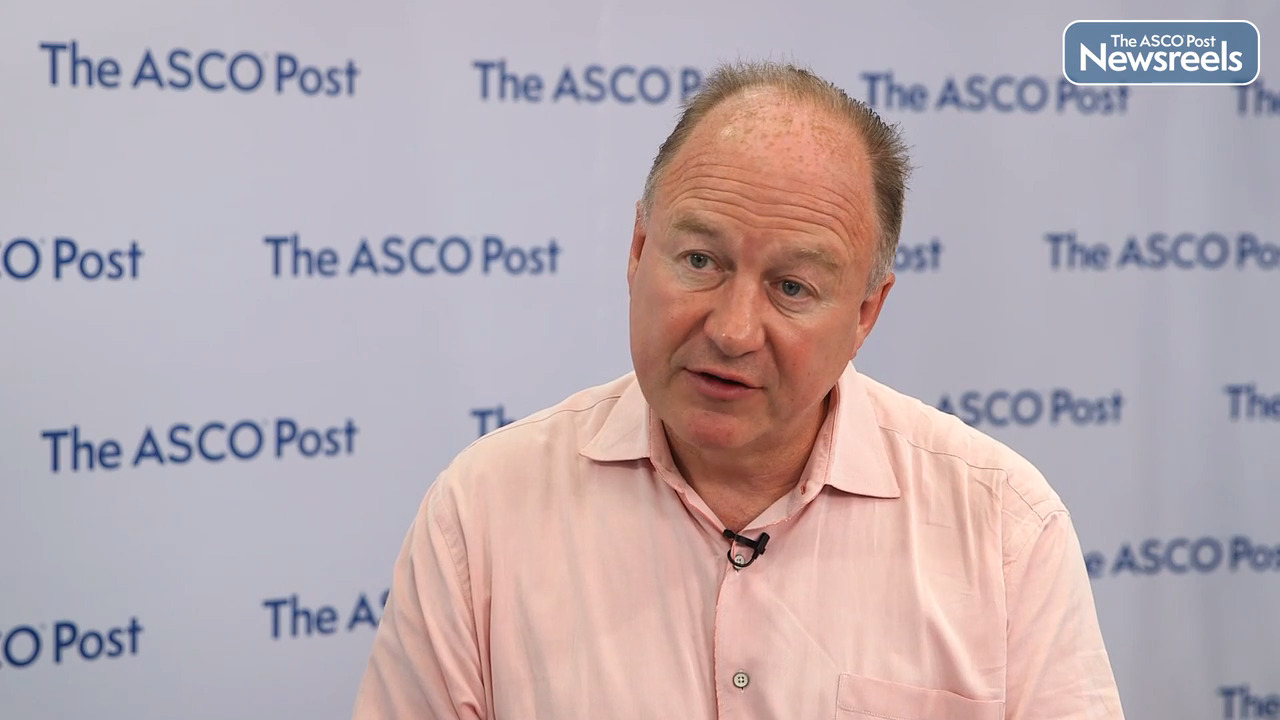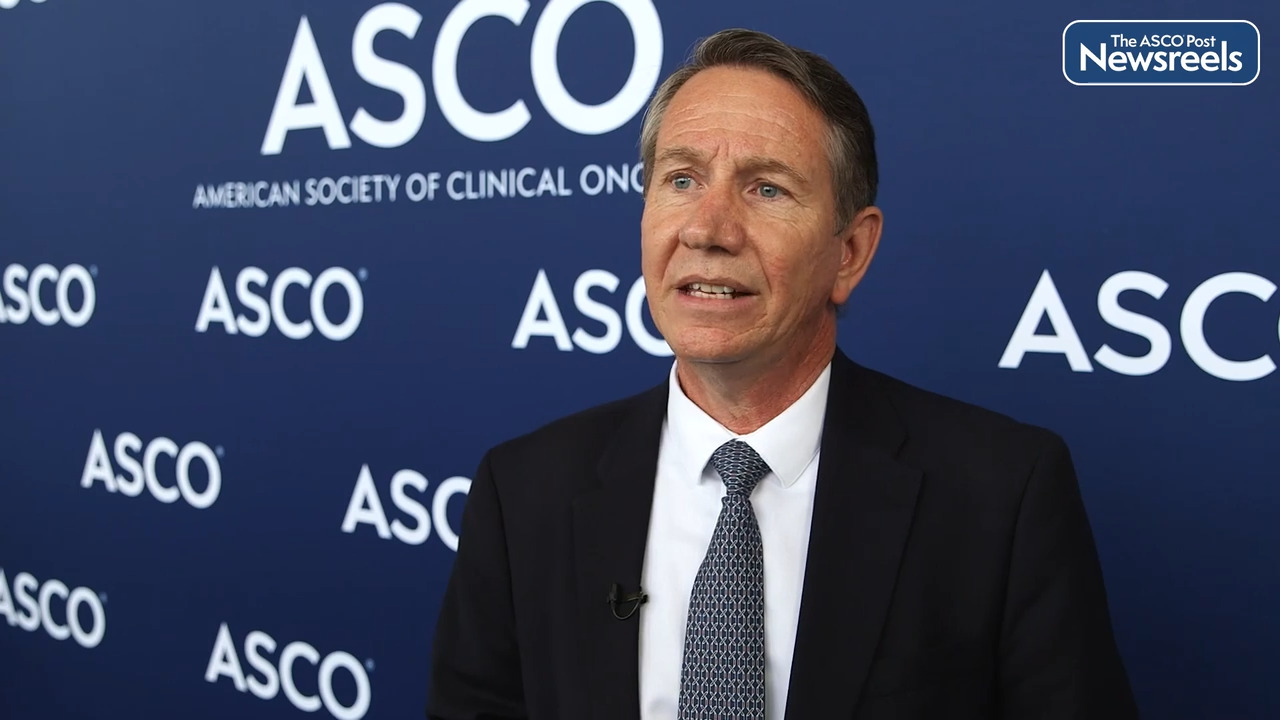Nancy Davidson, MD: In It for the Long Haul: Outcomes in Hormone Receptor–Positive Breast Cancer
2022 ASCO Annual Meeting
Nancy Davidson, MD, of the Fred Hutchinson Cancer Research Center, reviews results from four abstracts about the importance of long-term follow-up in studies of adjuvant endocrine therapy for hormone receptor–positive breast cancer. Because the natural history of hormone receptor–positive breast cancer is long, an effort is underway to improve selection of patients by clinical parameters or biomarkers, refine the endocrine therapy background, and administer more effective combinations of endocrine therapy with other agents.
Transcript
Disclaimer: This video transcript has not been proofread or edited and may contain errors.
Nancy Davidson:
One of the vexing problems in the management of hormone receptor positive breast cancer is that patients still relapse. We know a lot about the natural history of the disease, and we know that sometimes the relapses can be later. So, we had the opportunity recently to hear the results of four clinical trials that try to look at longer term outcomes in hormone receptor positive breast cancer. These trials in my estimation, try to tackle a couple of different ways that we could improve on this situation. In some cases, they try to refine the selection of patients either by clinical parameters or by molecular tests. In other cases, they try to look at combinations of endocrine therapy or sequences of endocrine therapy. In some cases, they also take a look at the addition of other agents to endocrine therapy. And then finally, we sometimes look at the duration of endocrine therapy.
Now, the first trial that I want to talk about in this context is that a retrospective analysis of the trials from the IBCSG looking at the big trial, the soft trial, and the text trial. This reanalysis was done of this trial, these trials, to try to look at the subsets of high risk patients within those trials, those who had node positive disease or node greater than four nodes, or one to three positive nodes with high risk features. And that's because we wanted to look at them in the context of some of the CDK4/6 inhibitors trials that have also emerged. What came out is that there is an advantage of the endocrine therapy in these trials over the long haul. It also provides us with a baseline, so that we can use this in the future for trial designs for addition of new agents. Wonderful to see that long term follow up.
A second trial looked at older patients. Now this is a really unmet need in early stage breast cancer. This trial focus specifically on patients 70 or over, and it looked at a genomic index as a way of trying to select for or against the use of chemotherapy in addition to endocrine therapy. This genomic index hasn't really been used elsewhere and this trial did show at the end of the day that this index did not help to select for or against the use of chemotherapy. The patients that had high genomic index didn't do better with the chemotherapy. So, as a consequence, we won't be using it further but congratulations to them, we're focusing on high risk elderly patients. Another trial looked at ovarian function suppression in the context of tamoxifen. Long follow up again, it supports the use of ovarian function suppression as we've done in the past, but only two years actually. So, an effort to try to deescalate the ovarian function suppression, wonderful to see that long term follow up.
And then finally the last trial looked at whether or not we should use Denosumab, a bone strengthening agent in addition to hormone therapy in postmenopausal receptor positive breast cancer. We already know that this can help to decrease fractures and what the long term follow up of this trial has shown and exploratory endpoints that Denosumab also decreases the risk of recurrence of breast cancer and appears to also help with survival. So, this may in fact help us to think about whether or not we should use Denosumab to both maintain bone health and as a form of adjuvant therapy in this very select patient population that is postmenopausal women with receptor positive breast cancer, who are receiving aromatase inhibitors. And some these trials really support the notion that we must have longterm follow up for hormone receptor positive breast cancer patients when we're looking at these endocrine therapies and I applaud all four trialists for bringing us to the conclusion.
Related Videos
The ASCO Post Staff
Lisa A. Carey, MD, of the University of North Carolina Lineberger Comprehensive Cancer Center, and Shanu Modi, MD, of Memorial Sloan Kettering Cancer Center, discuss the phase III findings from the DESTINY-Breast04 trial, which compared fam-trastuzumab deruxtecan-nxki (T-DXd) vs treatment of physician’s choice (TPC) in patients with HER2-low unresectable and/or metastatic breast cancer. T-DXd is the first HER2-targeted therapy to demonstrate clinically meaningful improvement in progression-free and overall survival compared with TPC in this patient population, regardless of hormone receptor or immunohistochemistry status or prior use of CDK4/6 inhibitors (Abstract LBA3).
The ASCO Post Staff
Ruben A. Mesa, MD, of Mays Cancer Center at UT Health San Antonio MD Anderson Cancer Center, discusses new findings from the MOMENTUM study. This trial showed that in symptomatic and anemic patients with myelofibrosis, momelotinib was superior to danazol for symptom and spleen responses, as well as transfusion requirements (Abstract 7002).
The ASCO Post Staff
Clifford A. Hudis, MD, of the American Society of Clinical Oncology, and Karen E. Knudsen, PhD, MBA, of the American Cancer Society, discuss their collaboration, pooling their research and education resources to help empower patients with cancer and their families. Within 48 hours, Drs. Hudis and Knudsen were able to gear up a rapid response to the crisis in Ukraine, forming a clinical corps of volunteers to post information online in multiple languages, which helped patients navigate their care in the war-torn region. To date, 300 European cancer organizations have joined their efforts.
Paul G. Richardson, MD, of Dana-Farber Cancer Institute, discusses phase III findings from the DETERMINATION trial, which showed that, for patients with newly diagnosed multiple myeloma, lenalidomide, bortezomib, and dexamethasone (RVd) with or without autologous stem cell transplant (ASCT) and lenalidomide maintenance to disease progression resulted in the longest median progression-free survival reported for each approach, and a highly significant difference in progression-free survival in favor of early transplant. While overall response rates were similar, rates of MRD favored early transplant also, but toxicity was greater and quality of life was transiently but significantly diminished. No overall survival advantage has been observed to date (Abstract LBA4).
The ASCO Post Staff
Stephen M. Ansell, PhD, MD, of Mayo Clinic, discusses updated data from the ECHELON-1 trial, which showed that, when administered to patients with stage III or IV classical Hodgkin lymphoma, the combination of brentuximab vedotin, doxorubicin, vinblastine, and dacarbazine (A+AVD) vs doxorubicin, bleomycin, vinblastine, and dacarbazine resulted in a 41% reduction in the risk of death. These outcomes, says Dr. Ansell, confirm A+AVD as a preferred option for previously untreated disease (Abstract 7503).
